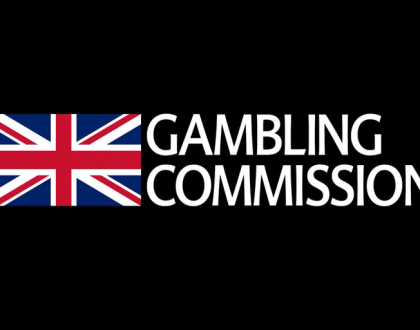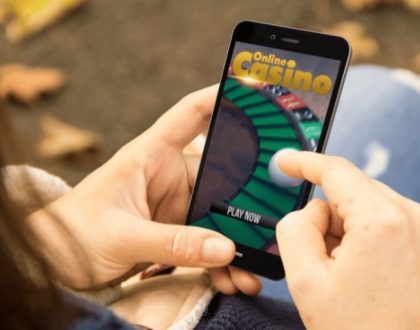Bonuses as a Marketing Tool – A Closer Look

Many businesses utilize bonuses as a strategic marketing tool to attract and retain customers. In this detailed examination, we will explore into the benefits and potential pitfalls of using bonuses in your marketing strategy. From increased customer loyalty and engagement to the risk of overspending and diminishing returns, understanding the intricacies of bonuses as a marketing tool is crucial for a successful campaign.
The Psychology Behind Bonuses
While bonuses are commonly used as a marketing tool, their effectiveness lies in the psychological impact they have on consumers. Understanding the mental processes at play can help businesses leverage bonuses to drive sales and create customer loyalty.
The Concept of ‘Added Value'
On a psychological level, bonuses tap into the concept of ‘added value’. When customers perceive they are getting more for their money, it triggers a positive emotional response. This extra value can make the product or service more appealing and justify the purchase in the customer’s mind.
How Bonuses Influence Buying Behavior
Bonuses have a powerful influence on buying behavior. When customers are presented with a bonus offer, it can create a sense of urgency and scarcity, driving them to make a purchase they might have otherwise delayed. Additionally, bonuses can enhance the perceived benefits of the product, making it seem like a better deal overall.
Influence: Understanding how bonuses influence buying behavior is crucial for businesses looking to maximize their marketing efforts. By strategically offering bonuses that appeal to customers’ emotions and desires, businesses can increase sales and foster stronger relationships with their target audience.
Types of Bonuses in Marketing
You may be considering implementing bonuses as part of your marketing strategy, but it’s important to understand the different types available to you. Bonuses can be monetary or non-monetary, each serving a unique purpose in incentivizing both customers and employees to take desired actions.
Monetary vs. Non-Monetary Bonuses
| Monetary Bonuses | Non-Monetary Bonuses |
| Direct financial rewards given to customers or employees. | Rewards that are not cash-based such as gift cards, discounts, or experiences. |
| Can be easily quantified and have an immediate impact. | Provide emotional value and can create long-term loyalty. |
| Often perceived as the most desirable form of bonus. | Can be more cost-effective for businesses to implement. |
| Can sometimes lead to a transactional relationship. | Can help build a deeper connection with the brand. |
| May encourage short-term behavior. | Help differentiate your brand from competitors. |
To determine the most suitable type of bonus for your marketing strategy, consider your objectives and target audience. Monetary bonuses may drive immediate action and are often perceived as more valuable, but non-monetary bonuses can foster long-term loyalty and emotional connections with your brand.
Common Bonus Structures and Programs
One common bonus structure in marketing is the use of tiered rewards, where customers or employees unlock increasingly valuable bonuses as they achieve specific milestones. This can create a sense of achievement and encourage continued engagement with your brand. Another popular program is the referral bonus, where existing customers are rewarded for bringing in new customers. This not only helps attract new business but also strengthens relationships with current customers who feel appreciated for their loyalty.
Monetary bonuses can be powerful incentives, but it’s important to carefully consider the potential impacts on your business. While they can drive short-term behavior and boost sales, they may also lead to a transactional relationship with customers or employees. Incorporating non-monetary bonuses alongside monetary ones can help create a more balanced approach that fosters long-term loyalty and emotional connections with your audience.
Effectiveness of Bonuses in Different Industries
Retail and Consumer Goods
Bonuses have been widely used in the retail and consumer goods industries to attract customers and encourage repeat purchases. Retailers often offer bonuses such as discounts, free gifts, or loyalty points to incentivize consumers to choose their products over competitors. These bonuses can create a sense of urgency and excitement among customers, leading to increased sales and brand loyalty.
Services Industry
Retail incentives in the services industry can vary significantly from retail and consumer goods. In this sector, bonuses such as referral discounts, free trials, or service upgrades are commonly used to entice new clients and retain existing ones. Service providers utilize bonuses to showcase their value proposition and differentiate themselves in a competitive marketplace.
The services industry relies heavily on building strong relationships with customers, and well-designed bonuses can foster trust and loyalty. By offering attractive bonuses, service providers can showcase their commitment to customer satisfaction and drive repeat business.
Digital Products and Online Services
As the digital landscape evolves, bonuses play a crucial role in attracting and retaining customers for digital products and online services. Companies in this sector often offer bonuses such as free trials, access to exclusive content, or discounts on subscriptions to entice users to sign up or upgrade their plans. These bonuses create a sense of value and urgency, driving conversions and reducing churn rates.
Effectiveness of bonuses in the digital products and online services industry is closely tied to user experience and perceived value. Companies that offer relevant and compelling bonuses can stand out in a saturated market and build a loyal customer base. Additionally, bonuses can serve as a powerful tool for user acquisition and increasing customer lifetime value in this competitive sector.
Strategies for Implementing Bonuses
Identifying Target Consumer Segments
Not all consumers are the same when it comes to their preferences and buying behavior. To effectively implement bonuses as a marketing tool, it is crucial to identify specific target consumer segments. This involves conducting market research to understand the demographics, psychographics, and purchasing patterns of different groups of consumers. By segmenting the market and tailoring bonus offers to meet the unique needs and desires of each segment, businesses can increase the effectiveness of their bonus strategies.
Timing and Frequency of Bonus Offers
Identifying the best timing and frequency for bonus offers is important for maximizing their impact on consumers. A well-timed bonus offer can create a sense of urgency and encourage immediate action from customers. Additionally, finding the right balance in the frequency of bonus offers is crucial to avoid desensitizing consumers and devaluing the bonuses. Businesses should carefully consider when and how often to provide bonus offers to maintain their appeal and effectiveness.
Legal and Ethical Considerations
Regulatory Framework and Compliance
Your company needs to adhere to the regulatory framework and compliance standards set by the governing bodies when offering bonuses as a marketing tool. This ensures that you are operating within the legal boundaries of your industry. Failure to comply with these regulations can result in hefty fines and damage to your company’s reputation. It is crucial to stay updated on any changes in the laws and regulations regarding bonuses to avoid any legal implications.
Ethical Implications and Consumer Trust
Regulatory compliance is just the first step in using bonuses ethically as a marketing tool. Consumer trust is paramount in this strategy, and any deceptive practices can have long-term negative consequences for your brand. Transparency in how bonuses are presented and delivered to consumers is key to maintaining trust. Consumers should feel that they are being treated fairly and that the bonuses are a genuine benefit to them.
This requires a commitment to honesty and integrity in your bonus offerings. Avoid misleading claims or hidden terms and conditions that could deceive consumers. Building a reputation for ethical behavior can lead to loyal customers who trust your brand and are more likely to engage with your products or services.
Measuring the Impact of Bonuses
After implementing bonus campaigns as part of your marketing strategy, it is crucial to measure their effectiveness to assess their impact on your business. Tracking the outcomes of these campaigns allows you to make data-driven decisions and optimize your bonus offerings for maximum results.
Key Performance Indicators (KPIs) for Bonus Campaigns
Impact: Key Performance Indicators (KPIs) play a vital role in measuring the success of bonus campaigns. Metrics such as conversion rates, average order value, customer retention, and overall sales growth are necessary in evaluating the effectiveness of bonuses. By analyzing these KPIs, you can gain insights into the impact of bonuses on different aspects of your business and make necessary adjustments to enhance their performance.
Long-Term vs. Short-Term Effects
Impact: Distinguishing between the long-term and short-term effects of bonus campaigns is crucial for understanding their overall impact on your business. While short-term effects may include immediate boosts in sales and customer engagement, long-term effects focus on sustained growth, brand loyalty, and overall market position. Striking a balance between short-term gains and long-term benefits is necessary for a successful bonus strategy.
Plus: Monitoring the long-term effects of bonus campaigns is vital to ensure their sustainability and continued success. While short-term results may provide immediate gratification, focusing on long-term goals can help build a strong foundation for lasting customer relationships and business growth. By carefully analyzing both short-term and long-term effects, you can create a well-rounded bonus strategy that delivers consistent results over time.
Challenges and Pitfalls
Saturation and Consumer Fatigue
Unlike the initial excitement that bonuses can create, overusing them can lead to saturation and consumer fatigue. When bonuses become a routine part of marketing strategies, consumers may start to expect them as the norm. This can diminish the effectiveness of bonuses in grabbing attention and driving sales.
Balancing Cost and Profit Margins
For businesses, offering bonuses as a marketing tool involves a delicate balance between cost and profit margins. While bonuses can attract customers and increase sales, they also come with a cost attached. It is important for businesses to carefully consider the financial implications of offering bonuses to ensure that the benefits outweigh the expenses.
Cost: When implementing bonuses as a marketing tool, businesses must calculate the associated costs accurately. This includes not only the direct costs of the bonuses themselves but also any additional expenses such as increased demand for products or services. A thorough cost-benefit analysis is important to determine whether the bonuses are generating enough profit to justify their implementation.
Adapting Bonuses to Digital Marketing
For businesses looking to leverage bonuses as a marketing tool in the digital age, it is necessary to adapt traditional bonus strategies to fit the online landscape. With the wealth of data available through digital channels, companies can now personalize their bonus offerings to target specific customer segments effectively. This data-driven approach can help businesses maximize the impact of their bonuses and drive customer engagement.
Leveraging Data and Personalization
One key aspect of adapting bonuses to digital marketing is leveraging data and personalization. By analyzing customer behavior and preferences, businesses can tailor their bonus offerings to match the individual needs and interests of their target audience. This personalized approach not only increases the relevance of the bonuses but also enhances the overall customer experience, leading to higher levels of customer satisfaction and loyalty.
Integrating Bonuses with Social Media Strategies
Marketing bonuses in the digital landscape also involves integrating them with social media strategies. Businesses can use social media platforms to promote their bonus offerings, create buzz around special promotions, and engage with customers in real-time. By incorporating bonuses into social media campaigns, companies can reach a wider audience and drive more traffic to their websites or online stores.
When integrating bonuses with social media strategies, it is crucial to leverage the power of social influencers to amplify the reach of bonus campaigns. Influencers can help create authentic content around the bonuses, making them more appealing and trustworthy to their followers. This collaboration can significantly boost the success of bonus campaigns and generate positive word-of-mouth marketing.
Summing up
Overall, bonuses are a versatile marketing tool that can be used effectively to attract and retain customers. By leveraging bonuses strategically, businesses can drive sales, encourage customer loyalty, and differentiate themselves from competitors. It is important for companies to carefully plan and execute their bonus strategies to ensure they align with their overall marketing objectives and resonate with their target audience.
As seen in this exploration, bonuses can take many forms, from discounts and freebies to loyalty rewards and referral incentives. Whether online or in-store, bonuses have the power to influence consumer behavior and create positive brand associations. Businesses that understand the significance of bonuses as a marketing tool can harness their potential to achieve impressive results in their marketing efforts.
FAQs:
What is the psychological impact of bonuses on consumers?
Bonuses tap into the concept of ‘added value’, triggering positive emotional responses and making products or services more appealing.
How do bonuses influence buying behavior?
Bonuses create a sense of urgency and scarcity, enhancing perceived benefits and encouraging immediate purchases.
What are the different types of bonuses in marketing?
Bonuses can be monetary (direct financial rewards) or non-monetary (emotional rewards such as gift cards or experiences).
What are common bonus structures and programs in marketing?
Tiered rewards and referral bonuses are common structures, fostering achievement and strengthening relationships.
What legal and ethical considerations should businesses keep in mind when offering bonuses?
Compliance with regulations, transparency, and ethical presentation are crucial for maintaining consumer trust and avoiding legal implications.
Michael
With over 20 years experience in web design, SEO and website promotion I always give you an expert advice in regard to any issues related to your Site Design, SEO, Internet Marketing, Promotion, Backlinks, Site Content. In order to help you find out what is missing or can be improved and get higher rankings in Google and more traffic.
Recommended Posts

Analysis of Q4 Online Gambling in UK
May 1, 2024

Understanding Casino Bonuses in a Snap
May 1, 2024

From Sign Up to Cash Out – The Bonus Journey
May 1, 2024
